PLENARY SPEAKERS
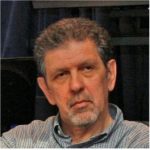
Prof. Frano Barbir, University of Split, Croatia
The role of hydrogen in decarbonization of energy
Prof. Barbir holds a Dipl.-Ing. degree in Mechanical Engineering and an M.Sc. degree in Chemical Engineering both from University of Zagreb, Croatia, and a Ph.D. degree in Mechanical Engineering from University of Miami, Coral Gables, FL. His research interests include heat and mass transfer in PEM fuel cells, effects of operational conditions on fuel cell performance and durability, design of fuel cells and fuel cell stacks and systems, fuel cell applications, and hydrogen energy concept and its role in context of energy future. He has authored and/or co-authored more than 200 papers on hydrogen and fuel cells published in scientific and technical journals, books, encyclopedias, and conference proceedings, as well as 7 U.S. and one EU patent on various aspects fuel cell stack and system design and operation. He is the President of Croatian Hydrogen Association, a Vice President of the International Association of Hydrogen Energy, and the Chairman of the States Representatives Group at Fuel Cells & Hydrogen Joint Undertaking. He is a member of the Croatian Academy of Technical Sciences. He is a recipient of Croatian Annual National Science Award for technical sciences, and a recipient of Hrvoje Pozar Award by Croatian Energy Society for exceptional contribution to energetics.
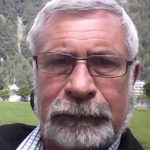
Dr. Mykhaylo Lototskyy, University of the Western Cape, South Africa
Dr. Mykhaylo Lototskyy graduated from the Moscow State University in 1977 and received his PhD degree in 1992 from the Lviv State University. He joined Mechanical Engineering Institute, Kharkov, where he worked on metal hydrides. Dr. Lototskyy’s work on metal hydrides in co-authorship with the group from Moscow State University was awarded Lenin Comsomol Prize. Following postdoctoral position at the Institute for Energy Technology Norway, Dr. Lototskyy joined the University of the Western Cape where he is now a Key Programme Manager at HySA Systems Competence Centre hosted by UWC. Dr. Lototskyy’s research interest focuses on metal hydrides and nanocomposites, thermodynamic and the kinetic performances of metal – hydrogen systems, gas-phase applications of metal hydrides including storage, compression and separation / purification of hydrogen.

Dr. Reinhard Tatschl, AVL List GmbH, Austria
Reinhard Tatschl is Principal Research and Technology Manager of the business unit Advanced Simulation Technologies of AVL List GmbH in Graz, Austria. He received his PhD from Graz University of Technology in 1992 and joined AVL as a research engineer, with his main activities related to CFD modeling and simulation of multiphase and reactive flows. In 1999 he took over the responsibility for the CFD software development activities, since 2012 he has been holding the current position which comprises initiating and coordinating in-house R&D activities as well as collaborative research and innovation projects with industry and academic partners. His current main research interests are related to modeling and simulation of batteries adopting different cell chemistries and electrode materials as well as polymer electrolyte and solid oxide fuel cells and related electrolyser technologies. He has published about 100 articles in conference proceedings and in international peer-reviewed journals.

Prof. Olivier Joubert, University of Nantes & CNRS, France
Olivier Joubert is presently full professor in Chemistry of Materials at University of Nantes and is Chair of electrochemical storage and conversion of energy group (ST2E) of "Institut des Matériaux Jean Rouxel (CNRS-IMN)". The major research interests of professor Joubert revolve around development of new materials for technological applications such as high and intermediate temperature ceramic Solid Oxide (SO) fuel or electrolyser cells (SOFC and SOEC). He is co-author of 120 publications, 25 invited talks and 5 patents. Olivier Joubert is chairing the French Research Network on Hydrogen Energy which assembles all French academic research groups in the field of electrolysis production and storage of hydrogen and also its conversion to electricity using fuel cell.

Prof. Duncan P. Fagg, University of Aveiro, Portugal
Dr.Duncan Fagg, is currently employed as a Principal Researcher in the centre for mechanical technology and automation (TEMA) in the University of Aveiro, Portugal. He is the author of over 135 international scientific publications, with a H-factor of 32, and 8 book chapters. He has over 20 years of research experience in materials engineering for electrochemical devices with previous placements in CICECO Aveiro, Portugal, ICV Autonomous University Madrid, Spain, Dept.Chemical Engineering, Patras Greece, School of Chemistry, St-Andrews University Scotland, and Risø DTU National Laboratory for Sustainable Energy, Roskilde Denmark. At present, he is the coordinator of a scientific team of 10 researchers, studying the conversion of intermittent renewable electricity into chemical products, such as hydrogen or synthetic hydrocarbons, their storage and their later reconversion to electricity in fuel cells. Work encompasses the design components for both protonic and oxide-ionic solid oxide electrolyser cells (SOEC), solid oxide fuel cells (SOFC) and separation membranes as well as hydrogen storage materials.

Prof. Volodymyr A. Yartys is a Professor of Materials Science and Hydrogen Technologies and Senior Scientist I at Institute for Energy Technology, Norway. He received PhD degree from Moscow State University in 1980, DSc degree from Lviv University in 1994 and became a Professor in Inorganic Chemistry in 1998. Prof. V.A. Yartys is an international expert in the area of hydrogen based energy storage working on: (a) Nanomaterials for energy storage; (b) Rechargeable Batteries; (c) H2 as an Energy Carrier; (d) New Materials for Hydrogen Storage and Battery Applications; (e) Hydrogen storage systems; (f) Use of metal hydrides in energy management. V.A. Yartys published two books and more than 250 peer reviewed papers which collected more than 8000 citations. He has been leading numerous research projects funded by European Commission, NATO Science for Peace Program, Norwegian Research Council, Nordic Energy Research, industry. Prof. V.A. Yartys is an Editor of Journal of Alloys and Compounds, Elsevier, representative of Norway in the International Society for Electrochemistry and a Member of the Steering Committee of the International Symposia on Metal Hydrogen Systems.
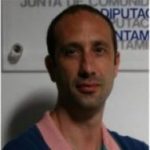
Prof. Justo Lobato Bajo, University of Castilla-La Mancha, Spain
Another way of green H2 production. SO2 depolarized electrolysis at high temperature
Prof. Lobato holds the Degree in Chemistry and the Ph.D. degree in Chemical Engineering both from University of Castilla-La Mancha (UCLM), Spain. He is presently full professor in Chemical Engineering at the same University. He is the Coordinator of the M.Sc. degree in Chemical Engineering and is responsible of the electrochemical energy storage and conversion research line of the Electrochemical and Environmental Engineering Lab of the Chemical Engineering Department at UCLM. His main research topics are electrochemical treatment of wastewaters and polluted soil/gas; PEMFCs; Electrochemical synthesis of compounds, H2 production, Microbial Fuel Cells, Redox Flow Batteries, Life Cycle Assessments... He has published more than 150 papers in JCR Journals, has written different book chapters and has participated in different International Conferences around the world (more than 160 communications). His research interest focuses on the development of membranes and electrodes for high temperature PEMFC, renewable energy storage by means of hydrogen production using hybrid sulphur thermochemical cycle or chlor-alkali process, connection of renewable energy with batteries and electrochemical devices, etc. He is an active member of the International Society of Electrochemistry (ISE) and Spanish Association of H2 (AeH2). He is evaluator of Research Projects for ANEP (Spain), MIUR (Italy), ANR (France), NCSTE (Kazahstan), CSF (Czech Republic) and CNDI (Romania) and a member of the Editorial board of different Research International Journals (Int. J. Hydrogen Energy, Catalysts, Nanomaterials,…).
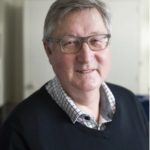
Prof. Dag Noréus, Stockholm University, Sweden
Ni-electrodes based aqueous rechargeable batteries continue to improve their performance
Dag Noréus is a professor in the Department of Materials and Environmental Chemistry at Stockholm University. He earned his PhD degree in reactor physics in 1982 at the Royal Institute of Technology, Stockholm, Sweden, and completed his postdoc at Daimler-Benz, Metal Hydride Laboratory, Stuttgart, Germany, in 1983. Noréus became a researcher in 1984 and a professor in 2000 in the Department of Structural Chemistry, Stockholm University. His research interests include x-ray diffraction, elastic and inelastic neutron scattering, and electrochemistry focusing on rechargeable aqueous battery systems.
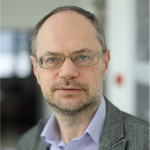
Prof. Miran Gaberšček, National Institute of Chemistry and University of Ljubljana, Slovenia
Mechanisms in advanced battery systems: theory vs. experiments
Dr. Miran Gaberšček, Professor of Materials Science is Head of Department for Materials Chemistry at the National Institute of Chemistry, Ljubljana, Slovenia. Since 2009 he has also been the Director of Centre of Excellence for Low Carbon Technologies, Ljubljana, Slovenia (the Centre joins 4 academic institutions and 10 industrial partners in Slovenia). Since 2003 he has been affiliated to the University of Ljubljana where he currently holds the position of Full Professor for the field of Materials Science. The primary research field of M. Gaberšček has been novel electrochemical systems for energy storage and conversion, more specifically primary and secondary batteries and fuel cells. In particular, he has been focused on explanation of complex charge transport and reaction mechanisms in these devices. Together with coworkers he has invented various novel or significantly improved active materials and explained their functioning using innovative approaches.
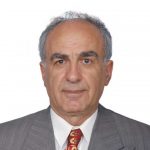
Prof. Saim Özkar, Middle East Technical University, Turkey
Increasing the catalytic efficiency of rhodium(0) nanoparticles in hydrolytic dehydrogenation of ammonia borane
Dr. Özkar graduated from Faculty of Chemical Engineering at the Technical University of Istanbul in 1972, and then worked for two years in industry. He received his Ph.D. in inorganic chemistry at the Technical University of Munich, Germany in 1976 and joined the Department of Chemistry, Middle East Technical University in 1979. He spent one year at the Max Planck Institute in Mülheim a.d. Ruhr, Germany as a scholar of Alexander von Humboldt-Foundation in 1986, 2 years at the University of Toronto as visiting professor in 1988-1990, and now 5 total years at Colorado State University since 2000 starting with a Fulbright Fellowship of 9 months. He was awarded Science Prize by the Scientific and Technological Research Council of Turkey in 1996 and has been a permanent member of Turkish Academy of Sciences since 1996. His research interests involve the catalysis, organometallic chemistry, transition metal nanoparticles (synthesis, characterization, and catalytic use in many industrially important reactions) as well as the reaction kinetics and mechanisms of catalysis.
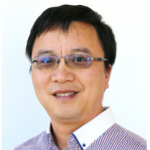
Prof. Yun Wang, University of California, USA
Fundamental aspects of air cathode design for lithium air battery
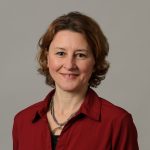
Prof. Jasna Janković, University of Connecticut, USA
Solving challenges for clean energy adoption - from a nano-scale world to macro-scale applications

Prof. Rezan Demir-Cakan, Gebze Technical University, Turkey
Organic electrodes for aqueous electrolyte Zn-ion Batteries
Rezan Demir-Cakan completed her Bachelor and Master degree from Yildiz Technical University at the Chemical Engineering Department. She received her Ph.D. degree at the Max Planck Institute of Colloids and Interfaces , in Germany (2009), under the supervison of Markus Antonietti working on the synthesis, characterization and applications of hydrothermal carbon materials. Then she moved to France, the group of Jean-Marie-Tarascon, focusing on the rechargeable lithium batteries, more specifically on lithium-sulphur batteries between 2009-2012. Currently she has been working as an Associate Professor at the Chemical Engineering Department of Gebze Technical University. Her research interests include the synthesis of nanostructured energy materials and their application in the field of Li/Na batteries.
